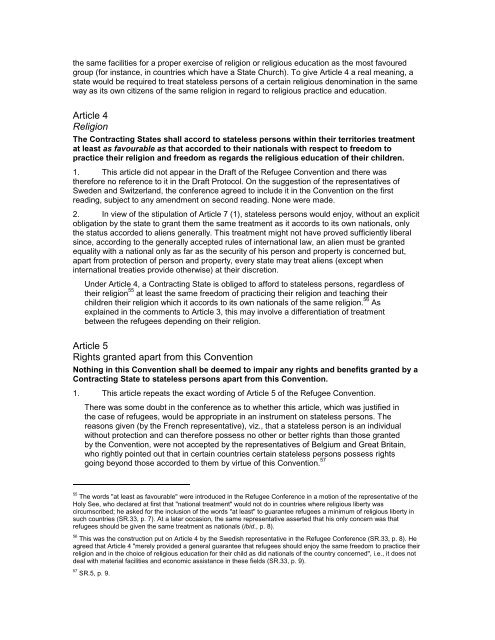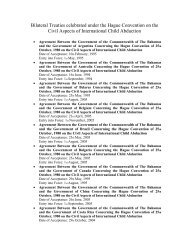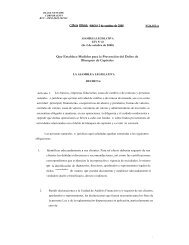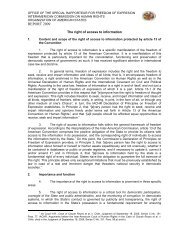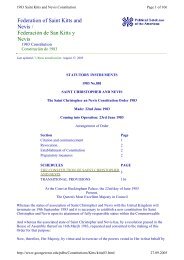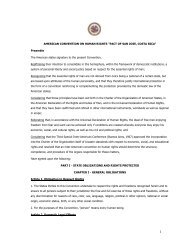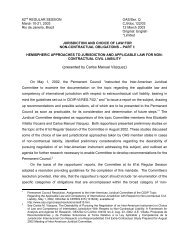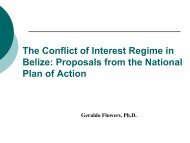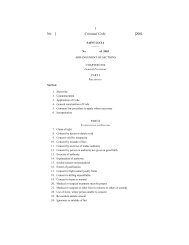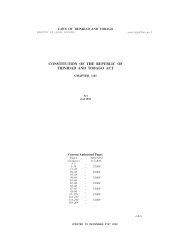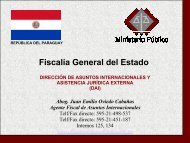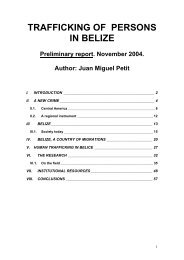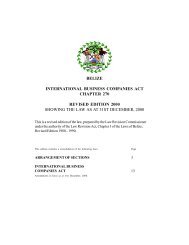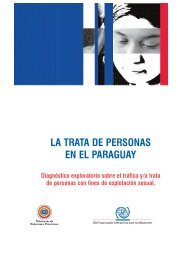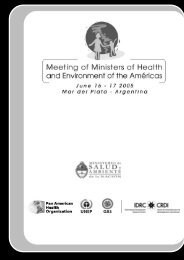CONVENTION RELATING TO THE STATUS OF ... - Refworld
CONVENTION RELATING TO THE STATUS OF ... - Refworld
CONVENTION RELATING TO THE STATUS OF ... - Refworld
Create successful ePaper yourself
Turn your PDF publications into a flip-book with our unique Google optimized e-Paper software.
the same facilities for a proper exercise of religion or religious education as the most favoured<br />
group (for instance, in countries which have a State Church). To give Article 4 a real meaning, a<br />
state would be required to treat stateless persons of a certain religious denomination in the same<br />
way as its own citizens of the same religion in regard to religious practice and education.<br />
Article 4<br />
Religion<br />
The Contracting States shall accord to stateless persons within their territories treatment<br />
at least as favourable as that accorded to their nationals with respect to freedom to<br />
practice their religion and freedom as regards the religious education of their children.<br />
1. This article did not appear in the Draft of the Refugee Convention and there was<br />
therefore no reference to it in the Draft Protocol. On the suggestion of the representatives of<br />
Sweden and Switzerland, the conference agreed to include it in the Convention on the first<br />
reading, subject to any amendment on second reading. None were made.<br />
2. In view of the stipulation of Article 7 (1), stateless persons would enjoy, without an explicit<br />
obligation by the state to grant them the same treatment as it accords to its own nationals, only<br />
the status accorded to aliens generally. This treatment might not have proved sufficiently liberal<br />
since, according to the generally accepted rules of international law, an alien must be granted<br />
equality with a national only as far as the security of his person and property is concerned but,<br />
apart from protection of person and property, every state may treat aliens (except when<br />
international treaties provide otherwise) at their discretion.<br />
Under Article 4, a Contracting State is obliged to afford to stateless persons, regardless of<br />
their religion 55 at least the same freedom of practicing their religion and teaching their<br />
children their religion which it accords to its own nationals of the same religion. 56 As<br />
explained in the comments to Article 3, this may involve a differentiation of treatment<br />
between the refugees depending on their religion.<br />
Article 5<br />
Rights granted apart from this Convention<br />
Nothing in this Convention shall be deemed to impair any rights and benefits granted by a<br />
Contracting State to stateless persons apart from this Convention.<br />
1. This article repeats the exact wording of Article 5 of the Refugee Convention.<br />
There was some doubt in the conference as to whether this article, which was justified in<br />
the case of refugees, would be appropriate in an instrument on stateless persons. The<br />
reasons given (by the French representative), viz., that a stateless person is an individual<br />
without protection and can therefore possess no other or better rights than those granted<br />
by the Convention, were not accepted by the representatives of Belgium and Great Britain,<br />
who rightly pointed out that in certain countries certain stateless persons possess rights<br />
going beyond those accorded to them by virtue of this Convention. 57<br />
55 The words "at least as favourable" were introduced in the Refugee Conference in a motion of the representative of the<br />
Holy See, who declared at first that "national treatment" would not do in countries where religious liberty was<br />
circumscribed; he asked for the inclusion of the words "at least" to guarantee refugees a minimum of religious liberty in<br />
such countries (SR.33, p. 7). At a later occasion, the same representative asserted that his only concern was that<br />
refugees should be given the same treatment as nationals (ibid., p. 8).<br />
56 This was the construction put on Article 4 by the Swedish representative in the Refugee Conference (SR.33, p. 8). He<br />
agreed that Article 4 "merely provided a general guarantee that refugees should enjoy the same freedom to practice their<br />
religion and in the choice of religious education for their child as did nationals of the country concerned", i.e., it does not<br />
deal with material facilities and economic assistance in these fields (SR.33, p. 9).<br />
57 SR.5, p. 9.


